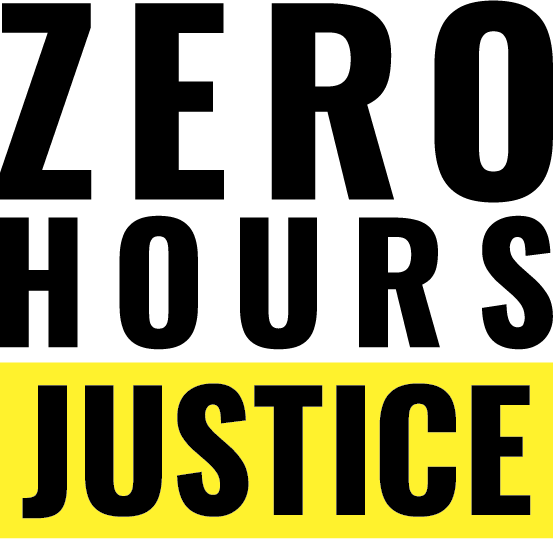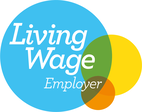|
By Pravin Jeyaraj and James Johnson-Flint  Zero Hours Justice welcomes the Government's plan to pay 80% of the salary of retained non-working employees of UK businesses suffering as a result of the coronavirus pandemic, up to £2500. But we are extremely concerned about the holes in this package of help and lack of clarity, especially for the most vulnerable on zero hours contracts. Two days after the announcement, it is still unclear how zero hours workers will be covered. Those sectors, such as food and hospitality, that have been hardest hit - with sales now at zero many have already taken action to lay such workers off. According to the latest employment figures, the food and hospitality sector has the biggest proportion of its workers who are on zero hours contracts. On Friday 20th March, Rishi Sunak, the Chancellor of the Exchequer, announced the setting up of the Coronovirus Jobs Retention Scheme (CJRS), which will provide a grant to any employer "to cover most of the wages of people who are not working but are furloughed and kept on payroll, rather than being laid off." In other words, anyone who is asked to stop working - but is not laid off or made redundant - because of the coronavirus pandemic - will still be paid 80% of their salary up to £2500, with employers having the option to top up the remaining 20%. There was however no specific mention in the Chancellor's speech of how this affects the around one million workers on zero hours contracts. However, in media questions that followed, he did say that zero hours contract workers will be protected too, as long as they are paid via PAYE, although how calculation is precisely made is not clear, albeit there was suggestion that if regular hours had been worked previously those would be applied. We are concerned that where workers have irregular hours, because of the very nature of the precarious employment so many are forced to accept, this may affect what they receive adversely, if they are lucky to be retained. Where an employer chooses not apply to the Coronavirus Job Retention Scheme, zero hours contract workers can apply for Universal Credit. The Universal Credit standard allowance is being increased by £1,000 a year, for the next 12 months. In addition, £1bn is being added to the Universal Credit budget, so that the Local Housing Allowance will cover at least 30% of market rents in the area. Improvements on where we were last week, yes, but still a stressful and financially precarious position so many will be in. Is this enough?? We fear not and the days ahead will show just how much hardship those on zero hours contracts are likely to have to endure, due to no fault of their own. Press Release: Zero Hours Justice reaction to Russell Group’s announcement on Zero Hours Contracts5/3/2020
The Russell Group, representing 24 leading universities, has just announced that they will be examining how certain short-term contracts are used. Zero Hours Justice welcomes aspects of the Russell Group’s announcement, which includes the statement that: “An area we are all concerned about is how some short-term contracts are used. On the one hand there will always be a need for flexibility: institutions need this, some staff prefer this and it can also create real opportunities. However, we recognise that over-reliance on some forms of employment models and associated contractual arrangements may not serve the best interests of staff, for example in supporting their development and career aspirations. Ultimately, they may also impact on the wider academic mission and the staff and student experience at university. We believe there is now an urgent need and an opportunity to address these challenges. Working collectively and individually across the Russell Group, we have all committed to collaborate on this to make real progress. We have started by establishing a small working group of senior leaders that will gather and analyse examples of best practice and ensure this is shared across all our universities." Responding to the announcement, James Johnson-Flint, Director of Zero Hours Justice said: “We are encouraged by The Russell Group’s announcement that they are at last looking to put an end to their sometime inappropriate use of zero hours contracts. Importantly, and not covered in the announcement, this needs to include those employed indirectly via outsourcing contractors or agencies, who provide significant numbers of cleaners, caterers, security and other essential workers to these establishments. Large numbers of these workers have for years worked hand to mouth under zero hours contracts and received no more than the minimum wage with no guarantee from day to day that they will be given enough hours to feed their kids or pay their rent.” “It has been recognised for some years that the UK’s leading universities are some of the worst offenders in higher education with regard to the employment of academics and other workers on insecure zero hours or minimal hours contracts. To get admission that inappropriate use of these contracts may not serve the best interests of staff and may compromise student experience is a major step forward.” For more information on our work, see zerohoursjustice.org The full Russell Group announcement can be read at https://russellgroup.ac.uk/news/russell-group-publishes-joint-statement-on-working-practices/ Ends Notes to editors:
Zero Hours Justice is a campaign led by a coalition of concerned citizens working together, with representatives from the TUC and responsible employers, with the aim of ending zero hours contracts when imposed unilaterally against a worker’s will. The aims of Zero Hours Justice are
Zero House Justice Press contact: Pravin Jeyaraj [email protected] Download assets / logos at this link: https://www.dropbox.com/sh/yzdfoqgfw5ob9qi/AABCNF9IzEOceoi-be4lW5MOa?dl=0 By Pravin Jeyaraj and James Johnson-Flint
CORONAVIRUS AND ZERO HOURS CONTRACTS – A DANGEROUS COMBINATION The sudden sweeping of the globe by the coronavirus highlights just how vulnerable workers on zero hours contracts are – and the potential danger for others. According to data provided by the Chinese Centre for Disease Control and Prevention, the groups at highest risk to the impact of the coronavirus are the elderly, those with health conditions and those working in healthcare. Coronavirus infections in the UK still appear to be primarily linked to contact with people who have travelled here from particular areas elsewhere in the world where there have been infections. However, this connection may be becoming more tenuous based on recent cases. So, if the spread of coronavirus becomes more widespread in the UK, it is health and social care workers who are most likely to come into contact with the virus. ZERO HOURS CONTRACT WORKERS WILL BE DISPROPORTIONATELY AFFECTED According to the latest figures from the Office for National Statistics, the health and social care sector has the second highest proportion of zero hours contract workers, second only to the workers in the food and accommodation sector, another sector that comes into face to face contact with significant numbers of people and potential Covid-19 carriers. NHS advice for anyone who comes into contact with the coronavirus is that you should self-isolate for 14 days, if advised by NHS 111. But if you are on a zero hours contract, the concern is that self-isolation means you are not available to take up work that is offered and so you will not be paid. "How many people actually can't take a day off sick?" asked broadcaster James O'Brien on his show on LBC. It is "a really big deal" that some people on zero hours contracts can simply not afford to take time off work if they contract an illness. O'Brien added that the fear for many is that "if you don't drag your carcass to work you don't get paid". Wondering how many would survive in the event of a pandemic, James argued "If you take two days off sick, you don't get shifts for the rest of the week", raising concerns about just how that would impact those on zero hour contracts and in less secure work. ZERO HOURS CONTRACT WORKERS AND STATUTORY SICK PAY “We have already heard that some employers are already trying to take advantage of the crisis by not paying sick pay to casual staff,” says Pravin Jeyaraj, Communications Officer at Zero Hours Justice. Has this happened to you? Let us know at zerohoursjustice.org and we’ll try and help. Zero Hours Justice believes that catching the coronavirus (or another illness) should not be an excuse for employers to refuse to pay statutory sick pay. If you are a zero hours contract worker, at the moment you may in principle be eligible to receive £94.25 a week statutory sick pay for up to 28 weeks, as long as:
However, it is by no means clear that if you are a zero hours contract worker and choose to self-isolate without showing symptoms you will have a contractual right to receive sick pay. This will depend on how the right to sick pay is defined in your contract of employment. Under many contracts of employment, a zero hours worker or an employee has no contractual right to sick pay unless they are "incapable of work". Statutory sick pay is also payable only in respect of a period when you are incapable of working. The Health Protection (Coronavirus) Regulations 2020 contain a declaration by the Secretary of State that the incidence or transmission of novel Coronavirus is a serious and imminent threat to public health, and the measures outlined in these regulations are considered as an effective means of delaying or preventing further transmission of the virus. Therefore, assuming that someone who self isolates does so because they are given a written notice, typically issued by a GP or by NHS 111, then they are deemed to be incapable of working, as defined in the Regulations. They would therefore be entitled to statutory sick pay. But if somebody chooses to self-isolate, and/or is not given that written notice, then they are not entitled to statutory sick pay. The required earning threshold for statutory sick pay also means that those who are in insecure forms of work, such as zero hours contract workers, are more likely to miss out on statutory sick pay because are likely to earn less. This is because their irregular hours may not result in them earning enough to meet the income threshold. Therefore, there is a danger that zero hours contract workers may force themselves in to work even if they are unwell and put fellow workers, patients or customers' health at risk. Analysis by the Trade Union Congress (TUC) shows that around a third (34%) of those on zero hours contracts do not meet the earnings threshold, compared to 6% of permanent employees. Statutory sick pay eligibility also varies significantly by age, with over one in five being ineligible for statutory sick pay due to not earning the required amount. Older employees, aged 65 and over, are also less likely to be eligible for SSP, with one in four not earning enough to be eligible. This mirrors the trend the TUC has observed in zero hours contracts, where these two age groups are the most likely to be employed on a zero hours contract. The Government's plan to introduce emergency legislation to make statutory sick pay payable from day one of being off sick is a welcome move, even if it is expected to be temporary. But it is not enough. The TUC believes that the Government should abolish the lower earnings limit (and any earnings threshold) for receiving Statutory Sick Pay, which would extend coverage to almost two million workers, including zero hours contract workers. Zero Hours Justice agrees and urges the Government to implement this recommendation in the forthcoming emergency legislation to deal with the Coronavirus. Are you on a zero hours contract and have already been affected by the Coronavirus? Let us know. The information provided is for general guidance regarding rights and responsibilities and should not be taken as formal legal advice. Each individual's case will differ. |
contactFor press enquiries or permission to reuse content, please contact: Archives
June 2024
CATEGORIES
All
|
|
Company No: 12417909 Registered Office: 38 Coney Street, York, Y01 9ND
|

 RSS Feed
RSS Feed


